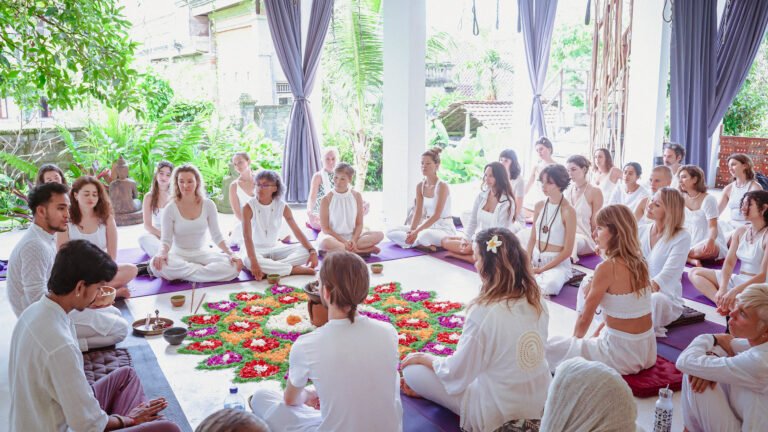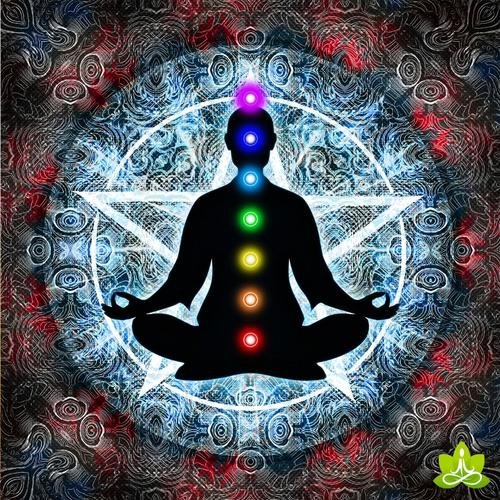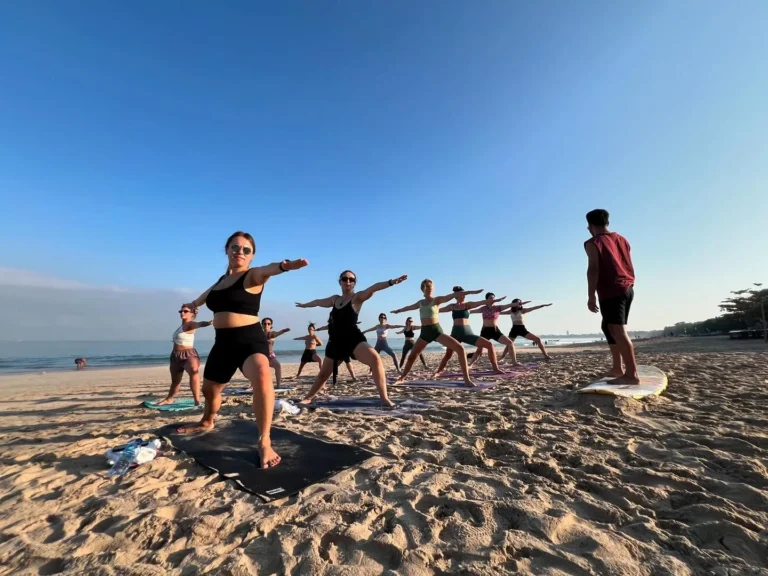Yoga Retreat vs Yoga Teacher Training: Which One To Choose?
Yoga has become a popular practice for individuals looking to improve their physical and mental well-being. As a result, there are many ways to deepen your yoga practice and knowledge.
Two of the most popular options are yoga retreats and yoga teacher training. While both offer unique experiences and benefits, they have some key differences that are important to understand before choosing which one to pursue.
In this article, we will explore what to expect from each option and provide tips for deciding which one is the right fit for you. Whether you’re looking to relax, rejuvenate, deepen your practice, or become a yoga teacher, we’ve got you covered.
Let’s dive in!
Yoga Retreat vs Yoga Teacher Training: Key Differences

Before diving into what to expect from each option, it’s important to understand the key differences between yoga retreats and yoga teacher training.
Firstly, a yoga retreat is designed to help individuals relax, rejuvenate, and deepen their yoga practice. It’s a chance to take a break from the stresses of daily life and focus on self-care.
In contrast, a yoga teacher training is designed to train individuals to become yoga teachers. It’s a more intense and focused program that requires a higher level of commitment, focus, and discipline.
Secondly, while both options can be intense in their own ways, a yoga teacher training typically requires a more rigorous level of commitment. Students are expected to attend all classes and complete all assignments, as well as commit to a certain number of hours of practice and teaching.
Thirdly, a yoga retreat may include a variety of yoga classes and workshops, but they are usually not structured around a specific curriculum.
A yoga teacher training, on the other hand, has a structured curriculum that covers everything from yoga philosophy and anatomy to teaching methodology and practice.
Finally, while some yoga retreats may offer a certificate of completion, a yoga teacher training is designed to provide individuals with the skills and knowledge necessary to become certified yoga teachers.
This means that the program is more intensive and focused on teaching methodology, as well as personal practice and development.
Yoga Retreats: What to Expect

Yoga retreats are a great way to deepen your practice, relax, and connect with like-minded individuals.When choosing a yoga retreat, there are several factors to consider to ensure that the experience meets your expectations.
Here are some things you can expect from a typical yoga retreat:
Time for self-reflection:
Retreats offer a chance to step away from the busyness of daily life and reflect on your personal goals and intentions. This can be done through journaling, guided meditations, or group discussions.
Opportunities for outdoor activities:
Many yoga retreats take place in beautiful natural settings, such as mountains or beaches. While the primary focus of a yoga retreat is typically yoga, many retreats offer additional activities such as hiking, swimming, or cultural excursions.
Consider whether you would like to incorporate other activities into your retreat experience, and look for a program that offers activities that align with your interests.
Healthy and delicious meals:
Most yoga retreats offer vegetarian or vegan meals that are designed to nourish the body and support your practice. Meals may be shared in a communal setting, providing an opportunity to connect with others.
A supportive and welcoming environment:
Yoga retreats are designed to be inclusive and welcoming to individuals of all levels and backgrounds. The atmosphere is often relaxed and supportive, with a focus on personal growth and self-care.
Location and Environment:
The location and environment of the retreat can greatly impact your experience. Consider whether you prefer a remote, natural setting such as a beach or a mountain, or a more urban location.
Think about the climate, terrain, and activities available in the area. It’s important to choose a location that feels safe and comfortable to you.
Daily Schedule:
The daily schedule of a retreat can vary widely, so make sure to check the itinerary before signing up. Some retreats offer a structured schedule with specific activities and classes, while others allow for more flexibility and free time.
Decide whether you prefer a more structured or relaxed schedule, and make sure the retreat you choose aligns with your preferences.
Yoga Classes and Workshops:
The yoga classes and workshops offered at the retreat should align with your goals and interests. Consider the style and level of yoga offered, as well as any additional workshops or activities.
Make sure the retreat offers enough variety to keep you engaged and challenged throughout the program.
Accommodation and Food:
Accommodation and food can greatly impact your comfort and enjoyment during the retreat. Check whether the retreat offers private or shared accommodation, and consider whether you would like to have a private room or prefer to share with others.
Also, consider any dietary restrictions or preferences you may have, and make sure the retreat offers meals that align with your needs.
By considering these factors, you can choose a yoga retreat that aligns with your goals, preferences, and needs, and provides you with a transformative and fulfilling experience.
Yoga Teacher Training: What to Expect

If you’re interested in becoming a certified yoga teacher, a yoga teacher training program can provide you with the knowledge and skills necessary to start your journey.
Here are some important aspects to consider when choosing a yoga teacher training program:
Curriculum and Certification:
Make sure the program covers the necessary curriculum to become a certified yoga teacher. This includes yoga philosophy, anatomy, teaching methodology, and personal practice and development.
Check the certification requirements for the program, and ensure that it aligns with your goals and needs.
Course Duration and Intensity:
Yoga teacher training programs can vary greatly in terms of duration and intensity. Consider whether you prefer a shorter or longer program, and whether you’re able to commit to the time and energy required for the program.
Look for a program that provides a balance of practice and theory, and fits your schedule and lifestyle.
Teaching Practice and Feedback:
A key aspect of becoming a yoga teacher is developing your teaching skills. Look for a program that provides ample teaching practice opportunities, as well as constructive feedback and support from experienced teachers. This will help you develop confidence and skill in teaching yoga to others.
Accommodation and Food:
Similar to a yoga retreat, accommodation and food can greatly impact your experience during a yoga teacher training program. Consider whether you prefer private or shared accommodation, and make sure the program offers meals that align with your dietary needs and preferences.
Additionally, check whether the program offers opportunities for relaxation and self-care, as the intensity of the program can be challenging.
By considering these factors, you can choose a yoga teacher training program that aligns with your goals, preferences, and needs, and provides you with the skills and knowledge necessary to become a certified yoga teacher.
Which Option is Right for You?
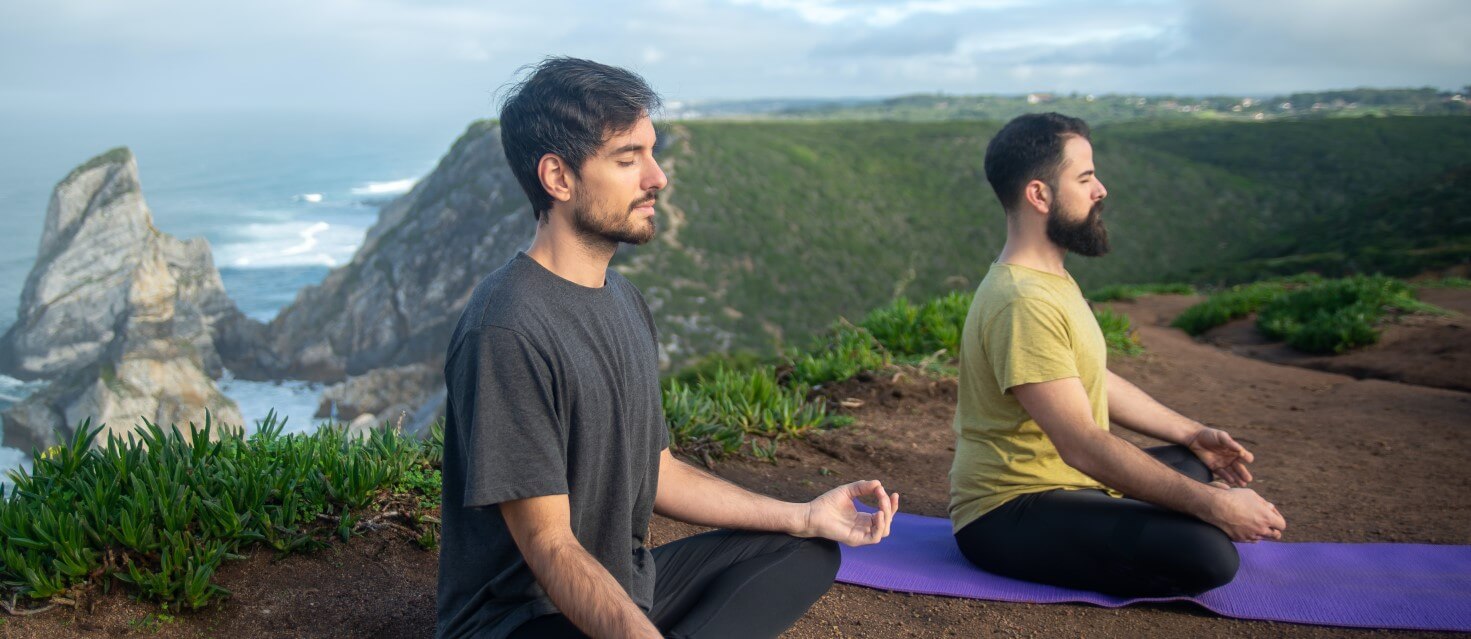
Now that you have a better understanding of what to expect from both yoga retreats and yoga teacher training programs, you may be wondering which option is right for you. Here are some factors to consider when making your decision:
Your goals and interests:
Consider what you hope to gain from the experience. If you’re looking to deepen your personal yoga practice and immerse yourself in a transformative experience, a yoga retreat may be the right choice for you.
On the other hand, if you’re interested in becoming a certified yoga teacher and sharing your knowledge with others, a yoga teacher training program may be the better option.
Time and schedule:
Both yoga retreats and teacher training programs require a significant time commitment. Consider whether you have the time and flexibility in your schedule to participate in the program.
Yoga retreats can range from a few days to a few weeks, while yoga teacher training programs can last anywhere from a few weeks to several months.
Level of commitment:
Yoga teacher training programs require a higher level of commitment and dedication than yoga retreats.
If you’re interested in becoming a certified yoga teacher, be prepared to commit a significant amount of time and energy to the program.
Budget:
Both yoga retreats and teacher training programs can be costly. Consider your budget and choose a program that aligns with your financial resources.
Ultimately, the decision of whether to participate in a yoga retreat or a yoga teacher training program depends on your individual goals, interests, and resources.
Consider these factors carefully, and choose the option that will provide you with the most fulfilling and transformative experience.
Conclusion
In conclusion, both yoga retreats and yoga teacher training programs offer unique and transformative experiences for those interested in deepening their yoga practice or becoming a certified yoga teacher.
Yoga retreats provide an opportunity to immerse yourself in your practice and take a break from your daily routine, while yoga teacher training programs provide a comprehensive curriculum and teaching experience to help you become a certified yoga teacher.
When choosing between the two options, consider your goals, schedule, level of commitment, and budget to determine which option is right for you.
No matter which option you choose, both yoga retreats and yoga teacher training programs can provide a life-changing experience that can deepen your connection to yoga and transform your life.
We hope this guide has provided you with valuable insights into what to expect from both yoga retreats and yoga teacher training programs, and has helped you make an informed decision on which option is right for you.
What level of yoga experience is required for a yoga retreat?
Yoga retreats can be suitable for all levels of experience, from beginners to advanced practitioners. However, it’s a good idea to check the program description to ensure it aligns with your level of experience.
Do I need to bring my own yoga mat and props to a yoga retreat?
Most yoga retreats provide yoga mats and props for participants, but it’s always a good idea to check with the program organizer beforehand.
Can I become a certified yoga teacher through a yoga retreat?
No, yoga retreats are not typically designed for certification purposes. However, some yoga retreats may offer workshops or classes that count toward continuing education credits for registered yoga teachers.
What certification do I need to become a yoga teacher?
The certification requirements for becoming a yoga teacher vary depending on the yoga alliance in your region. In the US, the Yoga Alliance is the most widely recognized organization for yoga teacher certification.
How much does a yoga teacher training program cost?
The cost of a yoga teacher training program varies depending on factors such as the program’s location, duration, and level of certification. Some programs can cost a few thousand dollars, while others may cost tens of thousands of dollars. It’s important to research and compare programs to find one that fits your budget and needs.

Yoga Retreat vs Yoga Teacher Training: Which One To
Yoga has become a popular practice for individuals looking to improve their…
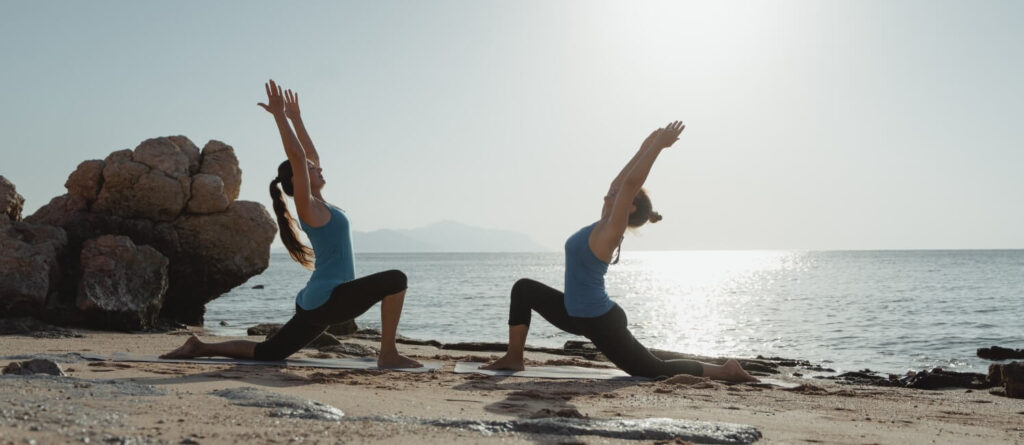
How to Start a Career as a Yoga Teacher: A Step-by-Step
Yoga is not only a great way to improve your physical health…

The Ultimate Guide to the Benefits of Yoga for Stress and
Stress and Anxiety Management with Yoga Stress and anxiety are two of…
Get in Touch :
Yoga Teacher Training in Rishikesh


